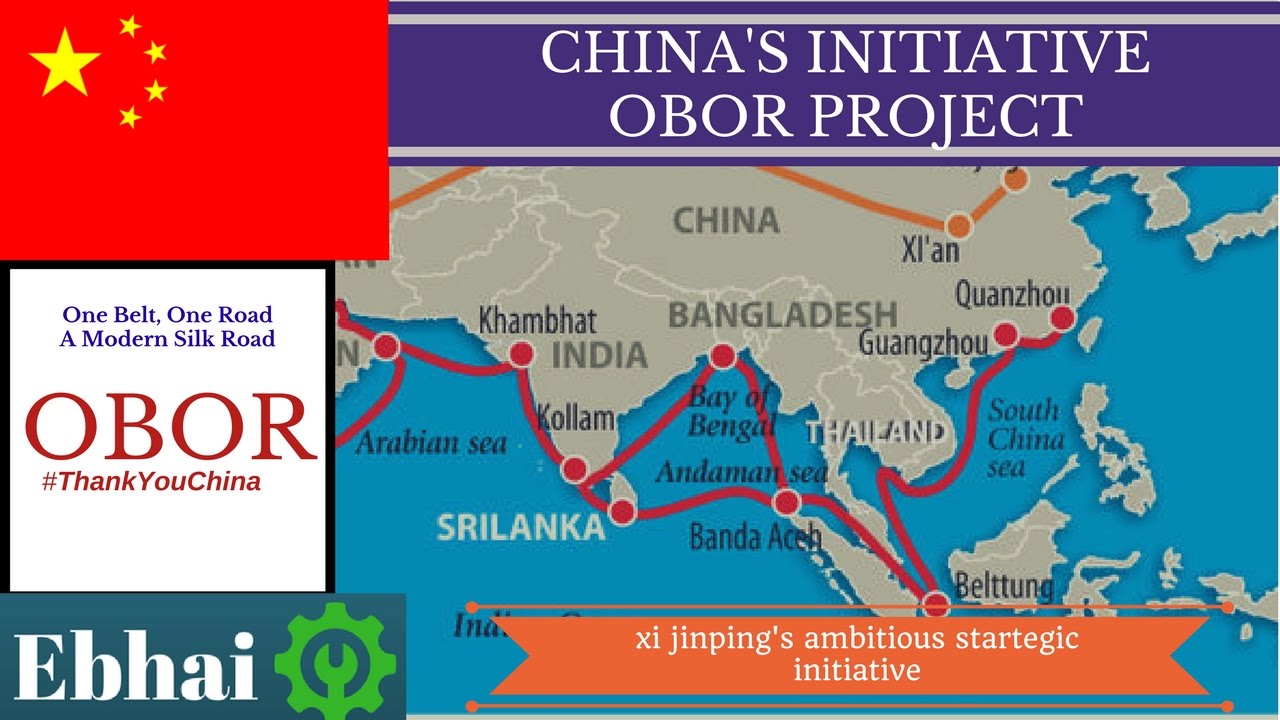China will not beg India to join OBOR
June 7, 2017 | Expert Insights

China’s media on Wednesday said that Beijing would welcome India to join the ‘One Belt, One Road’ (OBOR) initiative but would not beg India to accede its request.
OBOR- One Belt One Road
China has initiated a Twenty-First Century Maritime Silk Road –‘One Belt One Corridor’ that focuses primarily on connecting and encouraging cooperation among Eurasian countries. The emphasis is on enhancing land as well as maritime routes. The policy is significant for China as it aims to boost domestic growth in the country. It is part of China’s strategy for economic diplomacy as it underlines China’s goal to undertake a larger role in global affairs.
Why is India abstaining from the deal?
Most of the South Asian countries have signed the deal. India has however maintained a strong stand of not being party to the joint initiative. It was abstaining from the OBOR forum that was held recently, India’s main concern is that the ‘China Pakistan Economic Corridor’ (CPEC) which is part of OBOR runs through Pakistan occupied Kashmir. However, China has not yet tried to address this issue.
India has refrained from it as it does not want to dilute its stand on the Kashmir issue. It refuses to accept a project that ignores its ‘core concerns’ on sovereignty and territorial integrity. China has been a very close ally of Pakistan since the 1950s; it needs Pakistan in its strategic interest to become a global power so it is unlikely to favour India over Pakistan.
India and China have shared good relations. However, there have also been periods of mistrust when China refused India’s permanency in the Security Council and the NSG. Thus, it is difficult for India to trust China in these matters.
China claims that the OBOR project would have no implications on Kashmir. It is based on universally recognised international norms, good governance and rule of law. China also stated that India considers China as a strategic rival while it is only interested in enhancing mutual trust and regional development between the two countries.
China’s Hidden Agenda
China seems to have a geo-political and geo-economic strategy. It wants to get access to the Arabian Sea that would cut transit time for cargo movement and oil between China and the Middle East. It is therefore keen on investing in CPEC as it continues to support Pakistan.
This is a strategy of China to achieve the global leadership status especially when Trump is turning the United Status’s towards its domestic front. This is considered as China’s counter pivot strategy in reference to President Obama’s ‘pivot to Asia’ strategy that was launched in 2010 in attempts to contain China’s territorial ambition.
Assessment
India abstaining from the OBOR project would not bring it any success over the Kashmir issue. Most of the South Asian countries have signed the agreement and the CPEC project would anyway come into force, with or without India’s consent. It however might reduce India’s appeal in the region with all its neighbours partaking in it. India’s reiteration of its claim to Pakistan occupied Kashmir (PoK) may be politically useful but the claim would not improve chances of gaining back territory nor will its objections stop China from pursuing its ambitious project.








Comments